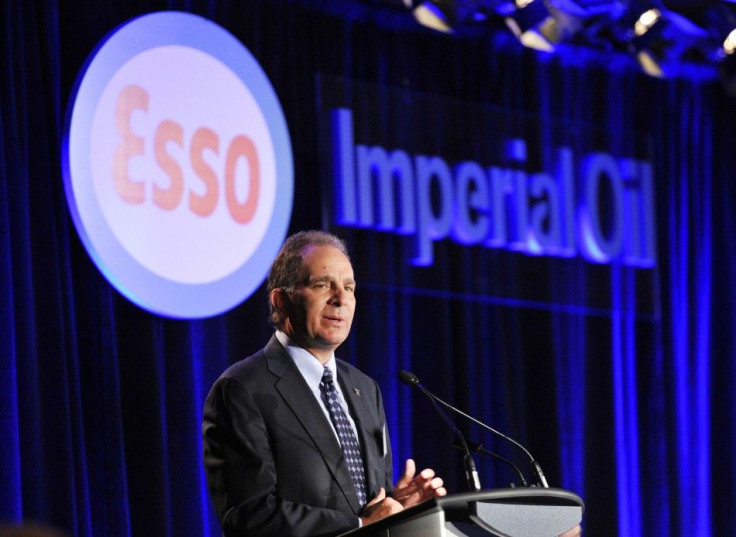Imperial says Kearl project costs rise above $28 billion

Imperial Oil Ltd said on Wednesday it will go ahead with an C$8.9 billion ($8.65 billion) plan to double the size of its Kearl oil sands project, even as it said total costs for the massive mining operation have climbed by nearly a quarter.
Imperial, majority owned by U.S. heavyweight Exxon Mobil Corp, gave the go-ahead to the oil sands mining project while still working to complete Kearl's first, 110,000 barrel-per-day tranche. The initial C$10.9 billion project will not begin operating until late next year.
Expected to eventually produce 345,000 barrels per day, the Kearl project will tap 4.6 billion barrels of reserves. But the cost of producing that resource has climbed. Imperial said it expected Kearl's costs to total C$6.20 per barrel of reserves, or more than C$28 billion, up from a prior estimate of C$5 per barrel or about C$23 billion.
The green light for the expansion comes amid a new burst of activity in Canada's tar sands, the world's third largest crude oil storehouse, behind Saudi Arabia and Venezuela, but the largest open to private investment.
Companies including Suncor Energy Inc, Total SA, Royal Dutch Shell Plc, Canadian Natural Resources Ltd and others have plans to expand their existing oil sands operations as production from northern Alberta is set to rise to 2.1 million bpd by 2015 from 1.5 million.
Those ambitious plans have raised fears that the projects will again begin to compete for scarce skilled labor and materials, sparking another round of inflation similar to what existed prior to the recession, when project costs routinely climbed by half or more.
However Imperial did not hang its cost increase on inflationary pressure. The company said it boosted its estimate because of plans to invest in new regional pipelines serving the project and because of unanticipated costs for controlling toxic mine tailings after the Alberta government introduced a regulation, called Directive 74, that forces companies to better manage tailings ponds.
The cost revision reflects modifications to the scope of the work and the facilities required at Kearl to comply with Directive 74, said Pius Rolheiser, a spokesman for the company. That includes changes to the mine plan, the tailings area design and also some technology.
Still, the revision is the second time in less than a year that the company has upped cost estimates. In May, it said Kearl's first phase would cost C$10.9 billion, a third higher than its original C$8 billion forecast.
As well, some are questioning the company's statement that the higher costs are coming because of a tailings regulation introduced in 2009.
We expect the market may not buy that explanation, Michael Dunn, an analyst at FirstEnergy Capital, wrote in a note to clients. The $5 per barrel cost estimate was reiterated this past May at Imperial's investor day, more than two years after ... Directive 74 was issued.
Kearl's second phase is expected to begin operating in late 2015. Further minor expansions and debottlenecking of the mining operation will eventually boost production to 345,000 barrels a day by 2020, part of Imperial plan to double oil production, to 600,000 bpd by the start of the next decade.
Along with Kearl, Imperial also has a 25 percent stake in the Syncrude Canada oil sands mining project and operates the 140,000 bpd Cold Lake thermal project, where steam is pumped into the ground to liquefy the bitumen so it can be pumped to the surface.
Imperial owns 71 percent of Kearl while Exxon Mobil has the remaining interest.
Imperial shares were up 28 Canadian cents at C$43.35 by mid-afternoon on the Toronto Stock Exchange.
© Copyright Thomson Reuters 2024. All rights reserved.





















